GALLERY 05 | WATER & EQUITY
EXHIBIT 01/02 01
A Tale for the Years: Water, Rights and Equity
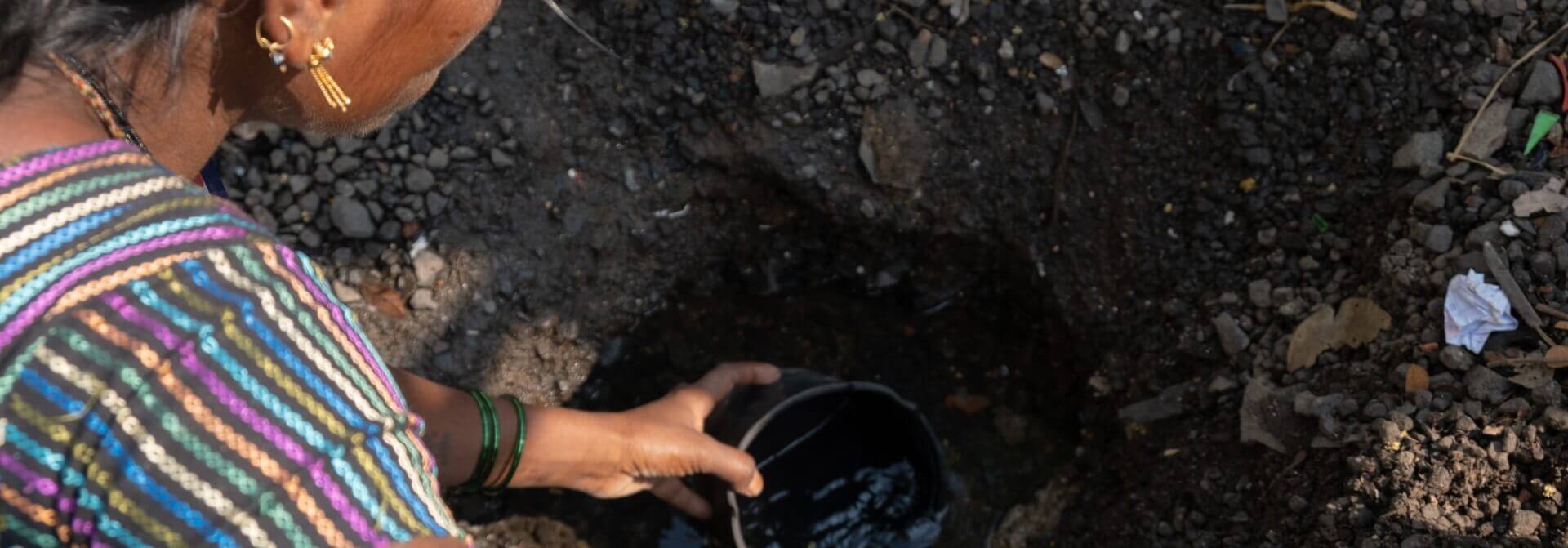
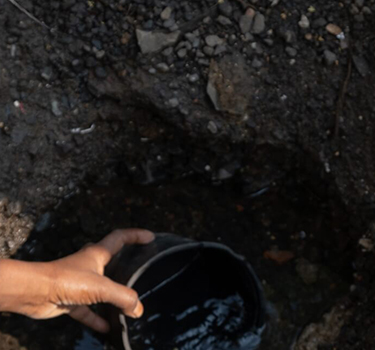


The essay takes the audience through their formation, their work, and the major mile-stones that have been achieved through their work over the last decade.
Through this photo essay, the authors also introduce the issue of water access inequity that affects over 2 million people in Mumbai, most of whom live in informal settlements.
The essay takes the audience through their formation, their work, and the major mile-stones that have been achieved through their work over the last decade.
Through this photo essay, the authors also introduce the issue of water access inequity that affects over 2 million people in Mumbai, most of whom live in informal settlements.
रहिमन पानी राखिये, बिन पानी सब सून। पानी गये न ऊबरे, मोती, मानुष, चून॥
Without water, everything is lifeless - be it humans, flour for bread, or the pearl in the ocean.
Pani Haq Samiti (Water Rights Committee), with Sitaram Shelar at the helm, was born out of a collective effort by the people to push back water privatisation attempts in K East Ward. Active now for nearly a decade, the grassroot campaign has bridged connections for the most ‘powerless’ citizens to the courts of law.
The following piece looks at their urban activism and their work that has provided hundreds of families with legal tap connections in informal settlements across Mumbai.
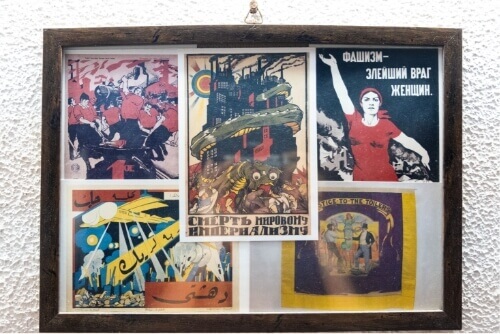
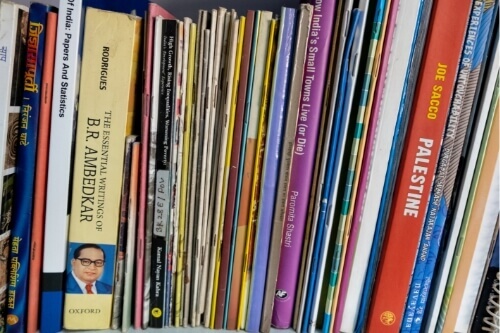
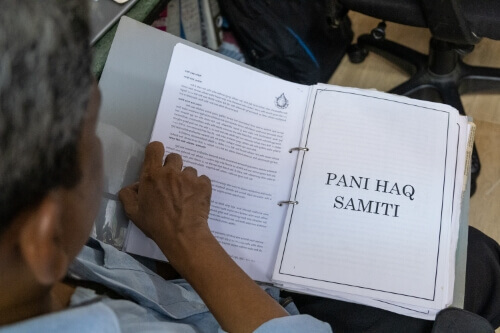
The first words that greet any visitor reaching the end of the stairs that lead up to the Pani Haq Samiti office are रहिमन पानी राखिये, बिन पानी सब सून। पानी गये न ऊबरे, मोती, मानुष, चून॥ The lines roughly convey that without water, everything is lifeless - be it humans, flour for bread, or the pearl in the ocean. Inside, PHS members are examining stacks of application forms for new water connections that they have filed on behalf of citizens across informal settlements (aka slums) in Mumbai. The walls are papered with copies of the preamble to the constitution, postcards in support of Palestine, displaying pro-worker slogans and imagery, calling for death to world imperialism, and decrying fascism as the worst enemy of women.
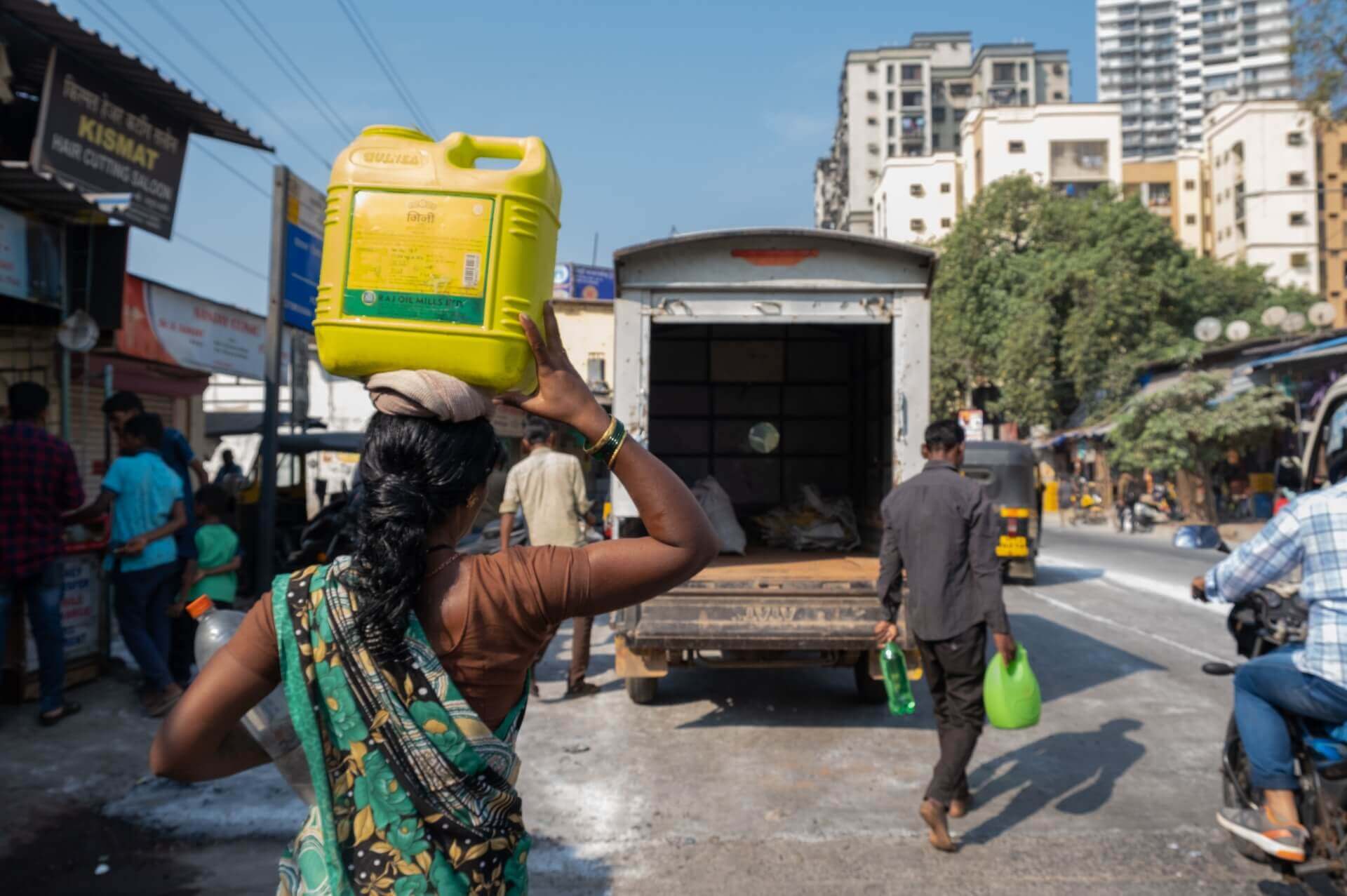
According to a state government regulation in 2001, settlements that came up after January 1, 1995 (later revised to 2000) are not entitled to Brihanmumbai Municipal Corporation (BMC) water supply. This disqualifies a sizable portion of Mumbai’s population that lives in informal settlements from accessing the city’s water.
Many also lack government issued documentation that is required to support their claim to water. Nearly two million people in Mumbai do not have a legal water connection. They must walk long distances to find either a public tap or a kind soul willing to allow them to fill water from their own connection.
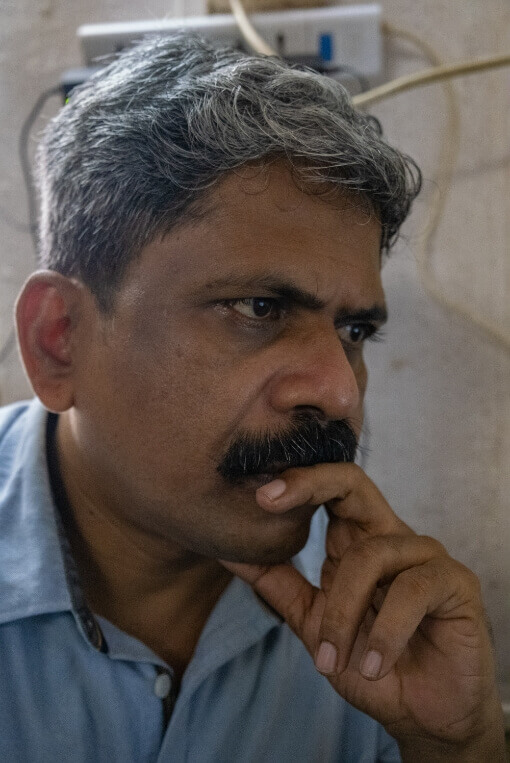
Sitaram Shelar - Convenor, Pani Haq Samiti
Pani Haq Samiti, with Sitaram Shelar at the helm, was born out of a collective effort by the people to push back privatisation attempts. Drawn into the politics of water from a young age, Shelar (47), convenor of PHS, has dedicated his adult life to activism around it. By the time PHS was formed, he had already been deeply involved in social work for around 10 years. As a young man, Shelar was forced to grapple with a reality centered around waiting for hours and being treated with derision just to access drinking water. These are experiences Shelar shares with lakhs of residents of informal settlements even today.

A resident of an informal settlement fills water from an overflowing valve in the ground from which water is released periodically to relieve pressure in the pipelines. Officially contesting land ownership and exploitation on minor technicalities are the main methods used against a landless, vulnerable population to further oppress them. Shelar observes that informal settlers and migrant populations have constantly been vilified by the media and those in power.

Pictured here are residents from GTB Nagar outside the local Ward office show the paperwork
they have jointly filed seven months ago for a new water connection. Photo: Suraj Katra.
Shelar highlights numerous cases of institutionalised violence where informal residents are denied legal access to water. Water markets crop up in these settlements which results in further financial exploitation of residents who, having no other option, must purchase water at inflated rates. They pay hefty bribes of up to one lakh rupees (approximately $1350) to install informal/illegal water connections which are then used as leverage by corrupt engineers and politicians to trade in favours.

The weaponizing of water by savarnas (upper-caste Hindus) against those belonging to lower-castes is oft-repeated in India’s history. This violence of this structure creeps into policy, law and politics and is fueled and maintained by those in power.
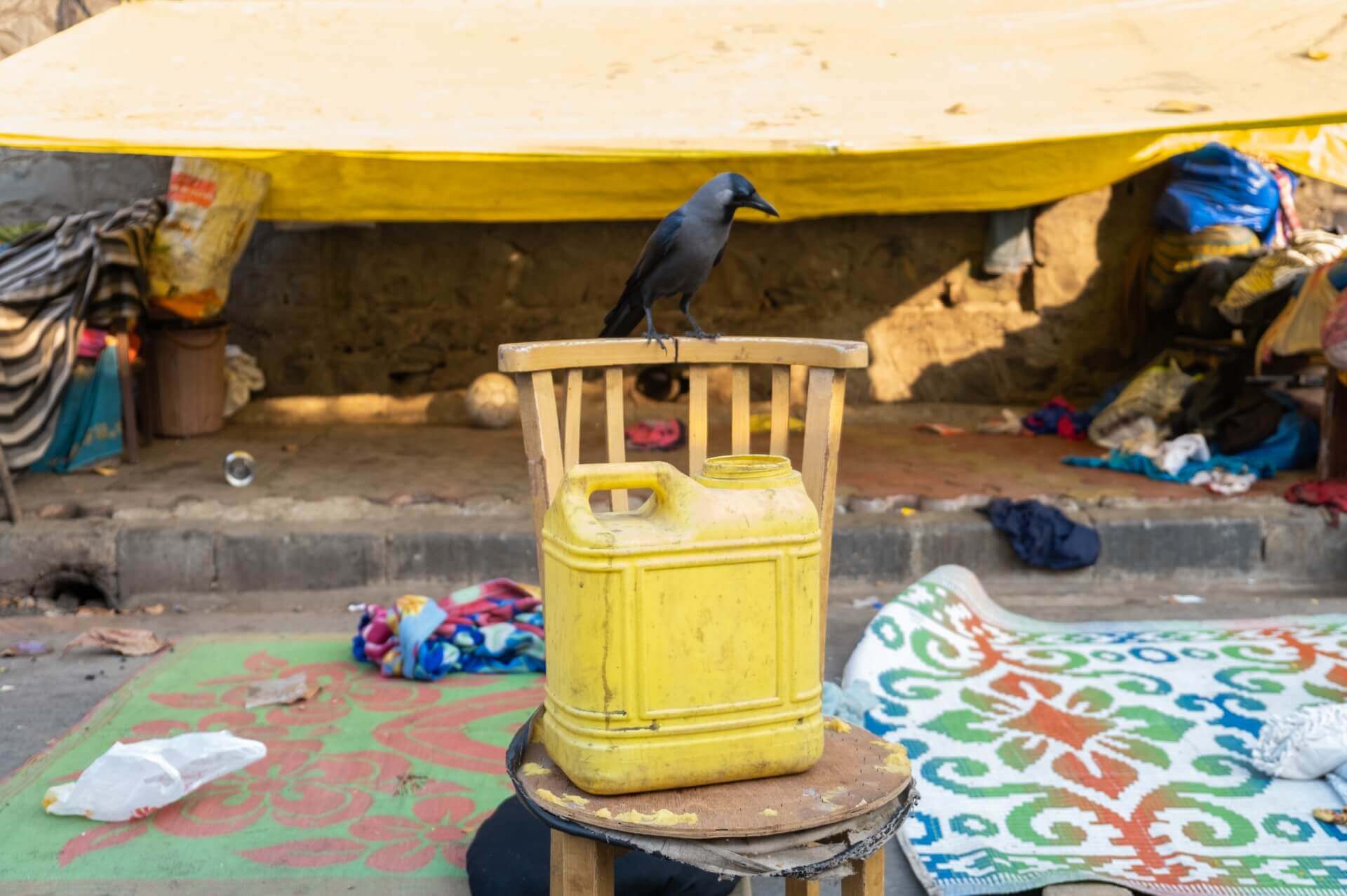
Attempts to ‘sanitise the city’ continue to push the lower classes to the margins, affecting livelihoods that they sustain through work that reduces them to scavengers. Informal settlers in Mumbai are bound by structures of caste and religion..
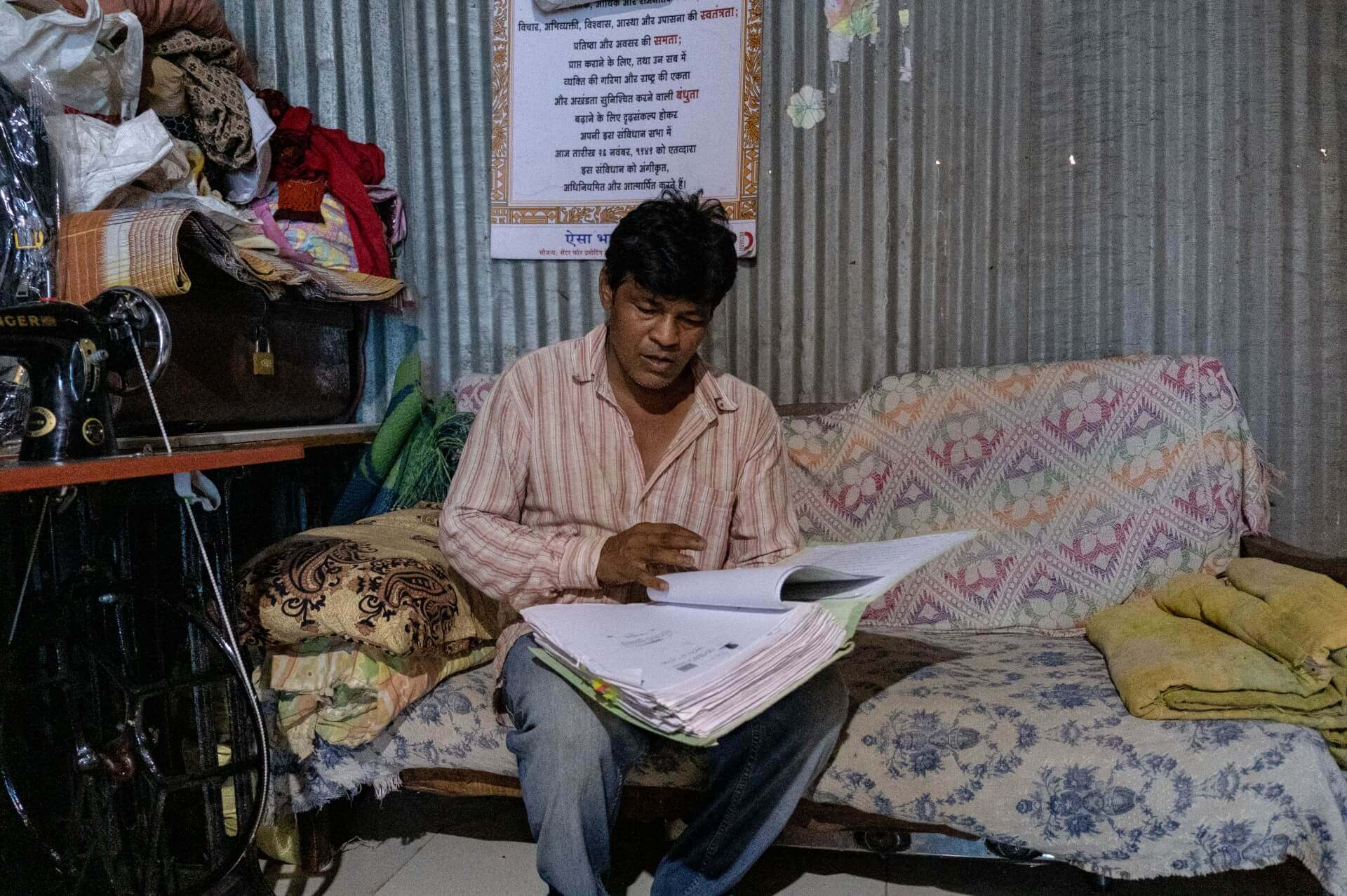
PHS works to ensure that every Indian citizen receives the dignity and equity promised by the State while creating awareness that water and sanitation are covered under the Right to Life. PHS also educates citizens from informal settlements across Mumbai on the fundamental rights accorded to them by the constitution with the objective of
cultivating a well-informed public opinion. Jai Mati, resident of Siddharth Nagar, has actively worked with PHS to secure a water connection for his community. Pictured here is the paperwork that has gone into this process over three years. Still, Siddharth Nagar does not have a legal water connection.
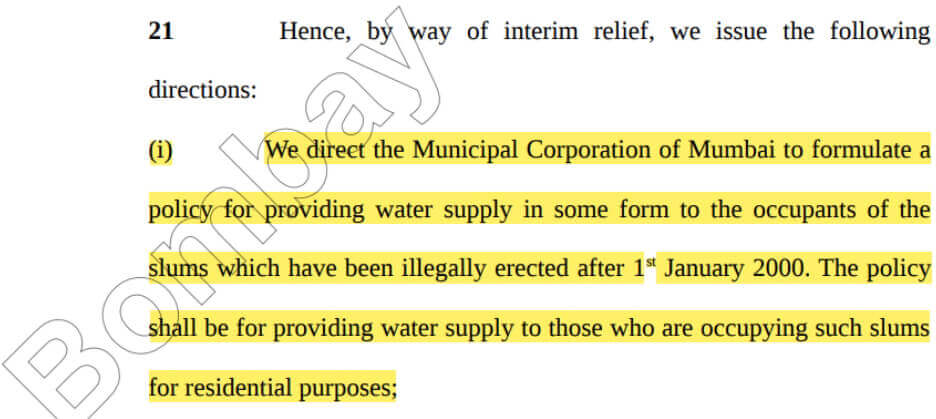
The first victory came in the form of a landmark judgement by the Mumbai High Court on Dec 15, 2014. For the first time in the country, a judgement articulated that water is a human right, a fundamental right and a precondition to the right to life. The judgement also stated that the municipal corporation is responsible to provide this right to its citizens. Pictured here is an excerpt from the judgement that directs the Municipal Corporation to provide water to unrecognised slums.

Two years on the BMC failed to deliver on its promises. Frustrated by the apathy, PHS organised a ‘Pani Pilao Abhiyaan’ on November 28, 2016. Almost 2000 people from informal settlements carried bottles of water filled with the water that they were forced to use for their daily needs, obtained at great personal risk from sources like toxic wells, public taps, leakages and private tankers.
The same day, the BMC passed a policy declaring that water would reach all houses. The other two significant wins that followed were getting NOCs from Mumbai Port Trust and Aarey that will allow over 25,000 families living on their land to apply for new water connections.

During the lockdown, Shelar filed a case in the high court on behalf of 33 informal settlements to urgently appeal for new water connections on humanitarian grounds. The BMC ultimately provided one informal water connection in the form of a public stand post and promised regular water tankers. Despite regular follow up, the tanker visits are infrequent and limited. Pictured here are residents of Siddharth Nagar in Andheri West gathering to fill water from the tanker despite the threat of Coronavirus.

Shelar and his colleagues have been at the receiving end of much verbal and attempted physical violence. This intense opposition and uproar only goes to prove that Shelar’s work and activism has made the system uncomfortable, because it challenges its politics that thrive on exclusion and oppression. This newspaper article from November 14, 2007, in The Times of India reports the scuffle that broke out at a World Bank Consultation meeting where Sitaram Shelar was threatened publicly.
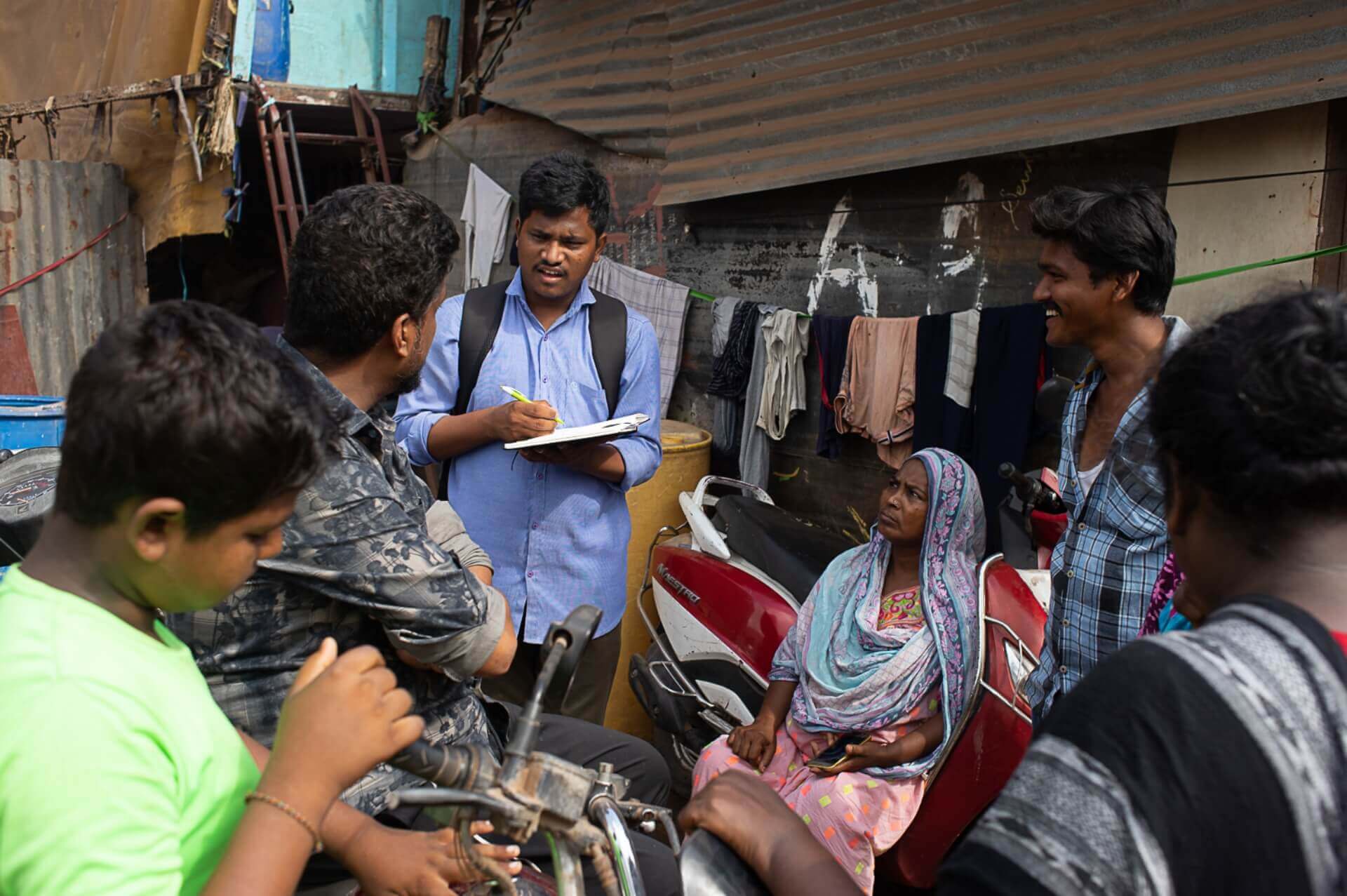
In Kokri Agar in Sion, Pravin Borkar, a PHS saathi, was kidnapped by a corporator and her goons to scare them into stopping their work. While Borkar was returned safely, Shelar remarked that threats of this nature are common and do not unsettle him. Pravin (in blue), pictured here in Kaula Bandar helping residents with the paperwork required for new water connections.

The PHS saathis. Clockwise from left - Sitaram Shelar, Yogesh Bole, Shakir Hussain Shaikh,
Pravin Borkar, Vishal Jadhav, Ruksar Khan, Sunil Yadav, Jagdish Patankar.
PHS has directly helped 400 families with new water connections. While the number of applications goes well over 1100, a lot of them have been rejected because of paperwork battles. Currently, around 785 other applications are being considered. Organisations like PHS are lesser-known but they protect the connection that the most powerless Indian citizen has to the courts of justice.